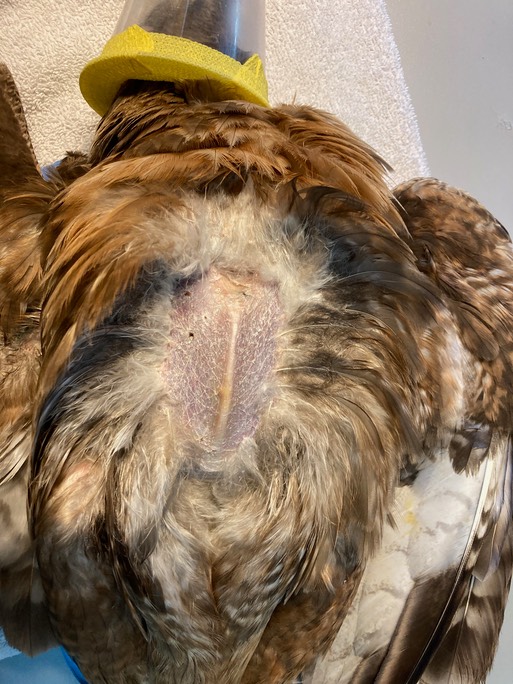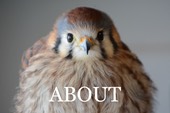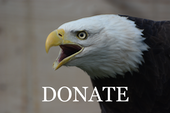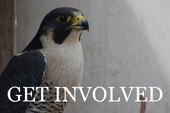The Week in Review
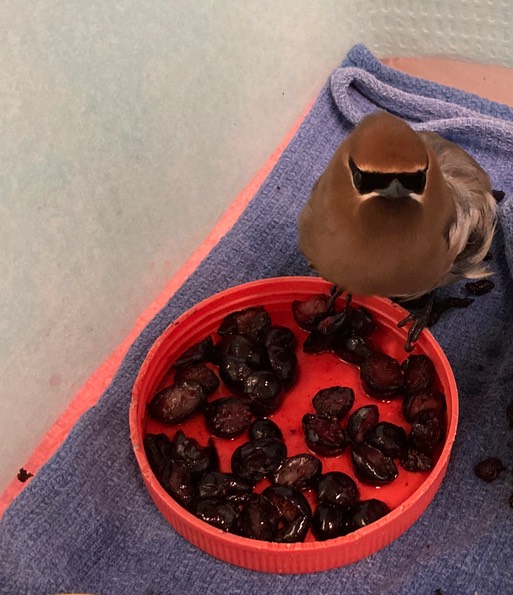
There were just six new admissions this past week. Injuries ranged from hit by car, electrocution, lead poisoning, window strikes and a Red-tailed Hawk that is a mystery.
The Cedar Waxwing above, 21-018, has a fractured coracoid, possibly from a window strike. His left wing has been immobilized with a bandage. It will take at least a week for the fracture to heal. Fortunately he has a very healthy appetite. He will eat two dishes of blueberries in a day.
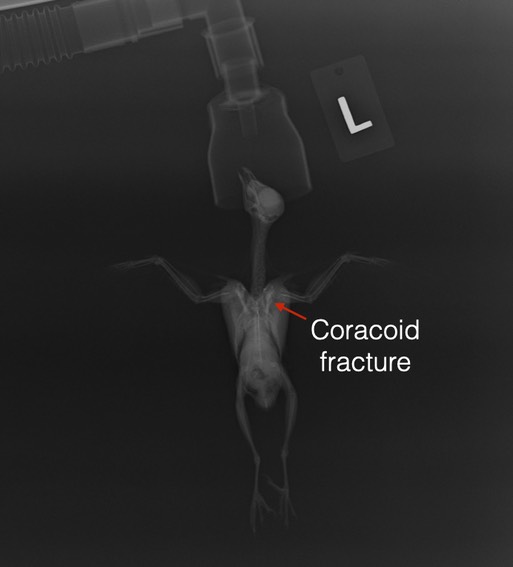
Bald Eagle 21-015 was the second Bald Eagle this month admitted with injuries caused by electrocution. He had extensive damage to both wings that was too severe to repair and was humanely euthanized. The first, a large female, Bald Eagle 21-001 is still in a hospital cage being treated. She needs to regenerate a lot of damaged tissue on her left wing and leg. It is slow going…
Cooper’s Hawk 21-016 had the highest blood lead level we have ever measured in a Cooper’s Hawk at 29.5 micrograms/deciliter. The hawk was very thin and exhibiting classic signs of lead poisoning. Although we immediately began treatment for lead and emaciation the hawk died the morning after admission. Necropsy results indicated she died from aspergillosis. Asper is caused by a fungus commonly found in the environment. Many species of raptors (and other birds) are susceptible to the infection when they are stressed. In addition to being stressed by ingested lead and starvation, the radiograph taken during her initial exam showed that she had been shot sometime earlier. Two pellets are visible on her right side.
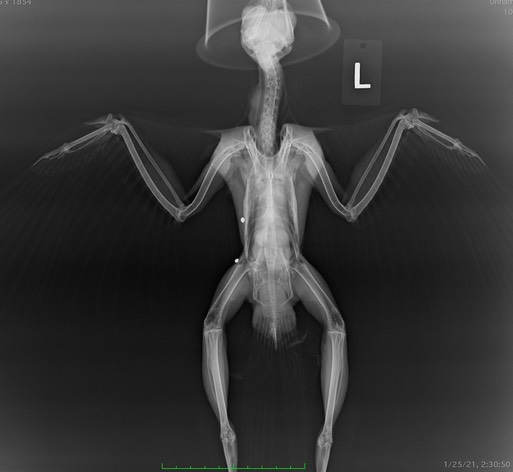
Red-tailed Hawk 21-017 is the mystery bird. She was fairly thin on admission, had multiple puncture wounds that seemed to be at least a few days old, a healed fracture of the right clavicle, slight atrophy of muscles on her left leg and poor balance indicative of a head injury. She also had the beginning of a brood patch and a significantly elevated white blood cell count of 43,000. One possibility is that she was in a territorial dispute with another raptor. She is eating well, so hopefully tincture of time and appropriate medications will turn the tide. In the photo of the brood patch below you can see several puncture wounds.
